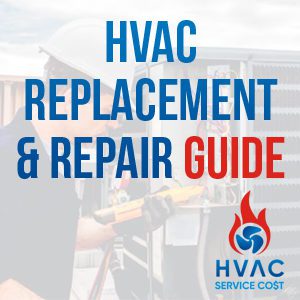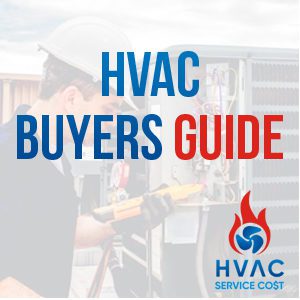
Why Is Your AC Running But Not Cooling? Here’s What to Check First
One of the most common calls I get as an HVAC contractor—especially in the middle of a scorching summer—is from frustrated homeowners who say, “My AC is running, but it’s not blowing cold air.” I’ve been in this business for over 20 years, and let me tell you, this issue almost always pops up on the hottest day of the year.
If your air conditioner seems to be working but your home feels more like a sauna than a sanctuary, there are a few things you should check before you call for service. Sometimes it’s a simple fix. Other times, it points to a deeper issue that needs professional attention. Either way, knowing what to look for can save you time, stress, and money.
Start With the Thermostat
Before checking anything else, look at your thermostat. It sounds basic, but I’ve seen many people overlook it.
Make sure it’s:
-
Set to “Cool”
-
Set to a temperature lower than the current room temperature
-
In good working order with fresh batteries (if it’s battery powered)
Also, if your thermostat is programmable or connected to a smart home system, check to see if any automated schedules or settings are interfering. I’ve had customers unknowingly set an “eco mode” that limited cooling without realizing it.

Check the Air Filter
This is the most common cause of weak cooling and one of the easiest to fix. A clogged air filter chokes airflow, making your system work harder while delivering less cold air to your home.
If your air filter is visibly dirty, it’s time to replace it. I recommend checking your filter monthly and changing it at least every 60–90 days—or more often if you have pets or allergies.
When airflow is restricted, cold air can’t circulate, and the system may even overheat or freeze up. That leads us to the next issue…
Inspect the Evaporator Coil for Ice
Take a peek inside your indoor unit (often in a closet, garage, or attic) and look for any signs of ice buildup on the evaporator coil or refrigerant lines. If you see ice, your AC is likely running but unable to transfer heat properly—which means it’s just pushing lukewarm air through your vents.
Common causes of a frozen coil include:
-
Dirty air filters (again!)
-
Low refrigerant levels
-
Poor airflow due to a blocked return duct or blower issue
If your coil is frozen, turn off the system and let it thaw completely before restarting it. Running the unit while it’s frozen can cause damage. If the problem keeps happening, call a technician—you might have a refrigerant leak or airflow issue that needs professional attention.
Check the Outdoor Unit
Your outdoor condenser is critical to the cooling process. If it’s not operating properly, your system can’t expel the heat from your home.
Here’s what to look for:
-
Is the fan running? If not, it may be a tripped breaker, failed capacitor, or motor issue.
-
Is the unit clean? A dirty or clogged condenser coil can prevent heat from escaping, reducing efficiency and cooling capacity.
-
Any unusual noises? Buzzing or humming could point to electrical problems or a failing compressor.
Gently spray down the outdoor coil with a hose (with the unit turned off) to remove dirt and debris. Keep shrubs and grass trimmed at least two feet away from the unit.
Make Sure Vents and Registers Are Open
Another easy fix: make sure your vents are open and unblocked. I’ve seen furniture, rugs, or kids’ toys accidentally covering floor registers and causing airflow problems.
You should also check to see if all rooms are getting airflow evenly. If some rooms feel cool while others are hot, you could be dealing with duct leaks, poor duct design, or even a zoning issue.

Low Refrigerant Levels
If you’ve ruled out the basics and your system is still running but not cooling, low refrigerant could be the culprit. AC units don’t “use up” refrigerant like fuel—it should stay at a consistent level. If it’s low, it likely means there’s a leak somewhere.
Signs of low refrigerant include:
-
AC blowing warm or slightly cool air
-
Ice on the refrigerant line
-
Hissing or bubbling sounds near the unit
-
Long cooling cycles without achieving the set temperature
Refrigerant issues are not DIY fixes. You’ll need a licensed HVAC pro to identify the leak, repair it, and recharge your system to the proper pressure.
Electrical or Control Board Issues
If everything else seems to be in working order and your AC still isn’t cooling, the issue may be electrical. Control boards, relays, or capacitors can fail without warning, especially in older systems or those exposed to lightning or power surges.
This is especially common here in Florida during storm season. If you’ve had a recent electrical event and the AC has been acting up since, a technician can test and replace damaged components safely.
When to Call a Professional
Some AC problems are quick DIY fixes—others are signs of a larger issue that needs professional attention. If you’ve:
-
Replaced your air filter
-
Checked the thermostat and power
-
Ensured the outdoor unit is clean and running
… and your AC still isn’t cooling, it’s time to schedule a service call.
Waiting too long can cause additional wear on the system or even complete failure. The sooner you diagnose and fix the issue, the less likely you’ll face major repairs (or a full system replacement) down the line.

Final Thoughts
When your AC is running but not cooling, don’t panic. In many cases, the problem is simple and easy to fix. But even small issues can snowball into expensive repairs if ignored.
Take a few minutes to check the basics: thermostat settings, air filter condition, ice buildup, and the status of your outdoor unit. If you’re not getting results after that, call in a licensed pro to get your system back on track.
After 20 years in this business, I can tell you—catching problems early and keeping up with regular maintenance is the best way to avoid breakdowns, especially during the hottest months of the year.
Written by Allen Chambers, a master electrician and licensed HVAC contractor with over 20 years of experience. I specialize in energy-efficient HVAC installations, smart technology integrations, and high-performance solutions for homes across Florida. I’m also a contributing writer for HVAC Service Cost, where I help homeowners make smart, cost-effective decisions about heating, cooling, and energy use.




Leave a Reply